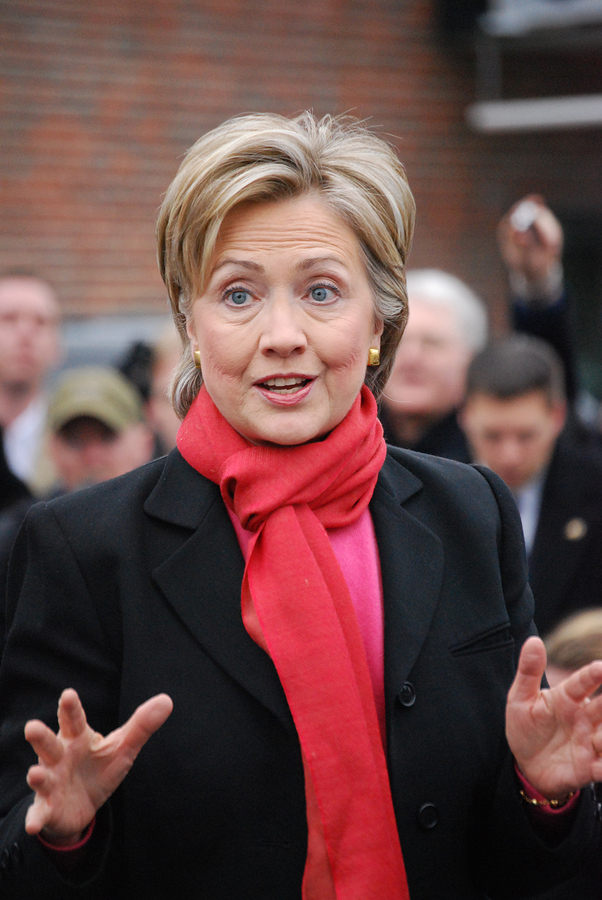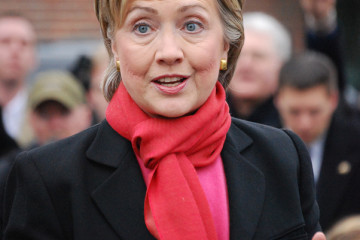Clinton’s Weaknesses Hidden by Republican Chaos: Albert R. Hunt

©2015 Bloomberg View
NY87XX6KLVR4
(Bloomberg View) — There’s cause for concern in Hillaryland, the constellation of Democratic advisers, supporters and politicians counting on the former secretary of state to lead the party to a sweeping victory next November.
Hillary Clinton’s nomination is almost a forgone conclusion, barring any unlikely legal or health issues. Democrats will offer a more coherent and unified front for the general election than fractious Republicans.
Still, this optimism is based on the weakness of the opposition, and ignores the candidate’s own glaring vulnerabilities.
The worries of some Clinton insiders are focused on the general election. There is an “enthusiasm gap.” She doesn’t excite important constituencies: young people, independents, possibly even minority voters.
To be sure, a number of women, especially middle-aged ones, are energized by the prospect of electing the first female U.S. president. That’s a strong asset.
But Clinton has a striking problem with young voters. A recent NBC News/Wall Street Journal poll showed a solid plurality of young voters has a negative view of Clinton. She did even worse in Bloomberg Politics national poll.
Here’s a result to unnerve her Brooklyn campaign headquarters. Both Barack Obama and Bill Clinton get a 60 percent favorable rating with 18-to-29-year-olds. She gets 35 percent approval and 57 percent unfavorable.
In the last presidential election, 19 percent of the voters were in that age cohort, which Obama won, 60 percent to 37 percent, providing his overall margin. There was a substantial decline in the number of young voters in the off-year elections, probably costing Democrats a couple Senate seats; a similar drop-off in 2016 might be decisive in a close election.
Clinton also has big problems with independent voters. In the nomination contest, she’s running well ahead of her chief challenger, Senator Bernie Sanders of Vermont. But she loses to him among Democratic-leaning independents. Over all, independents are negative about her by a margin of better than 3-to-2.
In 2012, almost three in 10 voters were independents and Obama came close to splitting that vote with Mitt Romney, the Republican candidate.
There is little doubt that Clinton easily would defeat any Republican among blacks and Hispanics. It’s far from certain, however, that these voters would be motivated to turn out in as large numbers as they did for Obama: In 2012, 13 percent of the electorate was black, and went more than 90 percent for Obama; 10 percent was Hispanics, who gave 71 percent of their vote to the president.
Will more black voters stay at home in 2016, without the first black president on the ticket? There is some evidence in recent nonpresidential years that heavier turnouts are becoming a habit with these voters.
Hispanics are the fastest-growing slice of the electorate, and the Democrats hope they have an ace in the hole that will generate higher turnouts next year: The anti-immigration invective from Donald Trump and other Republicans. There are leading Republican strategists who fear they are right.
Interviews with voters and focus groups clearly show that Clinton has a “likability” problem; more than a few young voters, particularly, as well as some independents, are turned off by her persona and say she seems old hat. In a famous exchange in a 2008 debate, Obama cracked, “you’re likable enough, Hillary.”
There probably are more important considerations, including her perceived strength, experience and intelligence, but most recent presidents, from Ronald Reagan through Obama, have passed the likability threshold.
Another liability is that, as of now, she doesn’t pass the trust test. The public’s negative view was reinforced by her clumsy handling of the controversy over her private e-mail as secretary of state.
Clinton is a disciplined politician who often has been able to recover when she’s down. But when she’s riding high, there’s a tendency to smugness; and because she doesn’t possess the great political instincts of her husband, she doesn’t respond well to problems. Today she has problems with important elements of the electorate.
This column does not necessarily reflect the opinion of the editorial board or Bloomberg LP and its owners.
To contact the author of this story: Albert R. Hunt at ahunt1@bloomberg.net To contact the editor responsible for this story: Max Berley at mberley@bloomberg.net
For more columns from Bloomberg View, visit http://www.bloomberg.com/view







No Comment